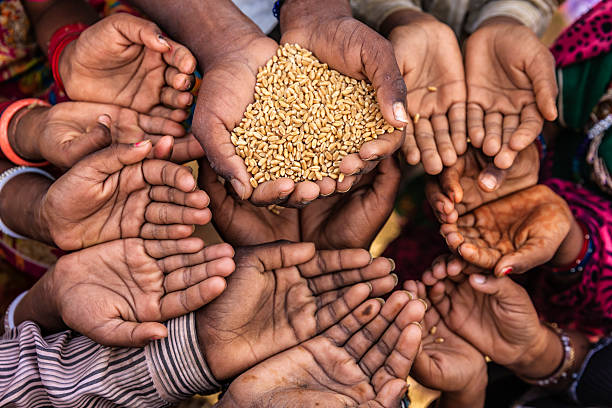Poverty is a growing global concern that affects millions of children and families around the world. It is a complex issue that has far-reaching consequences for both individuals and communities. In this article, we’ll explore the impact of poverty on children and families and what can be done to reduce its impact.
Introduction
Poverty is defined as the state of being economically deprived and unable to meet basic needs such as food, shelter, and clothing. It can have a profound impact on children and families, affecting their health, education, and overall well-being. Children who grow up in poverty are more likely to experience a range of negative outcomes, including poor health, limited educational opportunities, and limited access to essential services.
The Health Consequences of Poverty
Poverty can have a significant impact on the health of children and families. Children who grow up in poverty are more likely to experience malnutrition, inadequate housing, and limited access to healthcare. These factors can lead to a range of health problems, including:
Malnutrition: Children who grow up in poverty are more likely to experience malnutrition, which can lead to growth delays, weakened immune systems, and other health problems.
Inadequate housing: Children who live in poverty are often housed in substandard conditions, which can lead to health problems such as asthma, respiratory infections, and other health issues.
Limited access to healthcare: Children who grow up in poverty are more likely to lack access to basic healthcare services, including preventive care, immunizations, and medical treatments.
The Educational Consequences of Poverty
Poverty can also have a significant impact on the education of children and families. Children who grow up in poverty are more likely to experience limited educational opportunities, including:
Poor school performance: Children who grow up in poverty are more likely to perform poorly in school, which can limit their future educational and career opportunities.
Limited access to quality education: Children who live in poverty are often located in areas with limited access to quality education, including schools that are underfunded, under-resourced, and staffed by inexperienced teachers.
Absenteeism: Children who grow up in poverty are more likely to miss school due to illness, lack of transportation, and other factors.
The Psychological Consequences of Poverty
Poverty can also have a profound impact on the mental health of children and families. Children who grow up in poverty are more likely to experience a range of psychological problems, including:
Stress: Children who grow up in poverty are often exposed to high levels of stress, which can lead to behavioral and emotional problems.
Depression: Children who grow up in poverty are more likely to experience depression, anxiety, and other mental health problems.
Behavioral problems: Children who grow up in poverty are more likely to engage in risky behaviors, including substance abuse and criminal activity.
The Impact of Poverty on Families
Poverty can also have a significant impact on families, affecting the relationships between parents and children, as well as between partners. Poverty can lead to a range of family problems, including:
Parental stress: Parents who live in poverty are often exposed to high levels of stress, which can lead to poor parenting practices and an increased risk of child abuse and neglect.
Marital conflict: Poverty can strain relationships between partners, leading to increased conflict and a higher risk of divorce.
Addressing the Impact of Poverty
There are several steps that can be taken to address the impact of poverty on children and families, including:
Supporting economic growth: Governments can support economic growth by investing in infrastructure, education, and job training programs, which can help to create more opportunities for families to lift themselves out of poverty.
Improving access to essential services: Governments and non-profit organizations can work to improve access to essential services such as healthcare, education, and affordable housing for families living in poverty.
Providing financial assistance: Governments can provide financial assistance to families in need, such as through cash transfers, food assistance programs, and tax credits.
Reducing income inequality: Addressing income inequality is crucial to reducing poverty, as it can help to ensure that all families have access to the resources and opportunities they need to thrive.
Conclusion
Poverty has a profound impact on children and families, affecting their health, education, and overall well-being. Addressing poverty requires a multi-faceted approach, including supporting economic growth, improving access to essential services, providing financial assistance, and reducing income inequality. By working together, we can help to reduce the impact of poverty on children and families, and create a brighter future for all.












